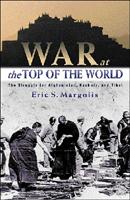Icarus Blair
May 15, 2007
Icarus Blair
by Eric Margolis by Eric Margolis
The noted British parliamentarian Enoch Powell famously observed, u201Call political careers end in failure.u201D Never has Powell’s grim maxim been more poignantly demonstrated than in Tony Blair’s announcement last week that he will resign at the end of June as Britain’s prime minister.
Blair’s decade in office was marked by many successes and often demonstrated capable political stewardship. But, in the end, his meteoric political career has ended in defeat and scorn. Call it Saddam’s curse.
The silver-tongued Blair transformed the demoralized, Marxist-dominated Labor movement he inherited into a forward-thinking, business-friendly, centrist party. Blair purged Labor of lingering Marxist-Socialist influences and replaced the sullen old guard with young technocrats and political moderates. He was fortunate to arrive on the scene when the Conservative Party had run out of steam, was steeped in scandal, and had lost public support.
Blair’s u201CNew Laboru201D benefited from a powerful economic upswing generated by the highly successful reforms initiated by former Conservative prime minister, Margaret Thatcher. Blair took advantage of this windfall, transforming Britain into one of Europe’s most dynamic and envied economies. Equally important, Blair deserves credit, as he put it, for making Britain u201Cat ease with globalizationu201D and u201Ccomfortable in the 21st Century.u201D
In the process, Blair raised Britain’s living standards and employment, making it a magnet for massive foreign investment and entrepreneurial Europeans. But there was a heavy price: the cost of living skyrocketed and income disparity between Britain’s booming south and its left-behind north grew wider. London became one of the world’s leading tax shelters, with preposterously inflated land values and Monaco-like rents to match.
Many admiring North Americans wished their own inarticulate leader possessed even a dash of Blair’s charisma, earnestness, and eloquence. Many Britons, however, accused Blair of being mostly political spin.
Had Tony Blair quit office on 10 September 2001, he would today be remembered and feted as one of Britain’s finer modern prime ministers. But then came Blair’s undoing, his fatal attraction to President George Bush’s war policies.
Historians will endlessly debate what impelled the sensible, intelligent Blair to enlist as first mate on Bush’s political Titanic. Blair had none of the arrogance and ignorance that led Bush and his Conservative Republicans into war. Unlike Americans, who were gravely misled about the Mideast by their media and religious special interest groups, the worldly British knew precisely what was going on.
Yet Blair ended up as a leading promoter of the Bush Administration’s grotesque lies about Iraq. He facilitated the Bush/Cheney war by providing Washington with credibility, diplomatic cover, and the pretense of a u201Ccoalition.u201D
Britain, as America’s premier ally, naturally felt pressure to join the war. Blair wanted Britain to get a share of the swag from Bush’s occupation of oil-rich Iraq.
But a true friend warns when you are about to drive over a cliff. Blair did not. Instead, he encouraged Bush and Cheney’s worst crusading instincts, validated their misconceptions and prejudices, and threw British troops into failed neo-colonial wars in Iraq and Afghanistan.
By joining these wars, Blair enflamed the Muslim World against Britain and aroused violent reactions among a tiny minority of Britain’s 1.6 million Muslim citizens. In response, Blair curtailed sacrosanct British civil liberties and brought its esteemed legal system into question.
Blair claimed he had joined Bush’s wars in order to exert restraining influence over US policy. But, in the end, Blair had almost no influence over the Bush Administration’s policies. He was cruelly derided everywhere as America’s u201Cpoodleu201D and a sort of Jeeves the British butler in the imperial White House. Blair’s obsequious pandering to the White House shamed and annoyed the proud British.
Blair’s formerly brilliant political reputation was destroyed by Iraq. His integrity and honesty were ruined by his steady litany of lies over Iraq and Afghanistan. Admiration for Blair turned to disgust.
A majority of Britons opposed the Iraq war and resented being seen as dutiful spear-carriers for America’s nuclear knights. As Labor’s popularity plummeted, a party rebellion finally forced Blair to announce he would resign and make way for Chancellor of the Exchequer, Gordon Brown.
 The Iraq debacle, and, to a lesser degree, Afghanistan, have become a curse for all politicians involved. Iraq is destroying Bush, Cheney and the Republican Party. It has ruined Blair, and may undo two other Bush protgs, Australia’s increasingly unpopular PM John Howard, and Canada’s conservative prime minister, Stephen Harper who, for inexplicable reasons, chose to emulate and eagerly support one of the world’s most unpopular leaders.
The Iraq debacle, and, to a lesser degree, Afghanistan, have become a curse for all politicians involved. Iraq is destroying Bush, Cheney and the Republican Party. It has ruined Blair, and may undo two other Bush protgs, Australia’s increasingly unpopular PM John Howard, and Canada’s conservative prime minister, Stephen Harper who, for inexplicable reasons, chose to emulate and eagerly support one of the world’s most unpopular leaders.
 Blair could have backed away from the Iraq disaster, but refused to abandon ship and kept insisting to the bitter end his faith-based policies were still right. This master of oratory could not, it seems, summon up the simple phrase, u201CI was wrong.u201D
Blair could have backed away from the Iraq disaster, but refused to abandon ship and kept insisting to the bitter end his faith-based policies were still right. This master of oratory could not, it seems, summon up the simple phrase, u201CI was wrong.u201D
One must feel a certain sympathy for Tony Blair’s Icarus-like fall to earth. But his sorry end was of his own doing, and well deserved. Tony Blair met his Waterloo in Iraq. He will not be the last.
